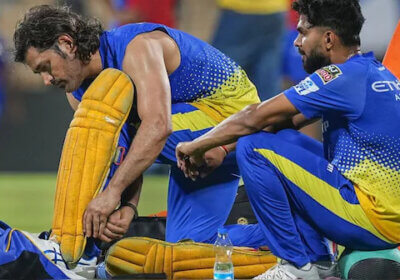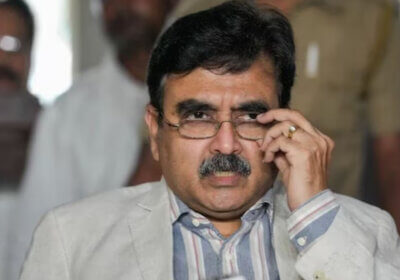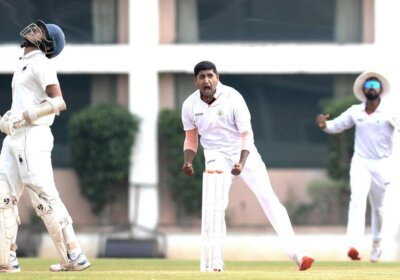Press freedom is a fundamental right in a democratic society. It ensures the public can access accurate and impartial information about government activities, current events, and social issues. However, India’s media freedom has been under threat in recent years. The recent raids on the British Broadcasting Corporation (BBC) offices in India highlight the growing concerns of journalists about the shrinking media freedom under Prime Minister Narendra Modi’s government.
Raid On BBC India
The BBC raids in India are just the latest in a series of incidents that have raised concerns about press freedom in the country. In recent years, journalists in India have faced increasing pressure from the government to toe the official line. Journalists who have been critical of the government have been targeted, harassed, and even arrested. This has led to a climate of fear and self-censorship among the media in India.
The raids on the BBC have been widely condemned by journalists and media organizations worldwide. Many see it as a clear violation of press freedom and an attack on democracy. The International Federation of Journalists (IFJ) has called on the Indian government to stop its harassment of the media and to respect the right to freedom of expression.
Falling Media Freedom
The shrinking media freedom in India under the Modi government is a cause for concern. In recent years, the government has tightened its grip on the media, and many journalists have been intimidated and harassed. This has led to a culture of self-censorship in the media, with many journalists avoiding sensitive topics to avoid attracting the government’s ire.
The government’s actions have also led to a polarization of the media in India. Many media outlets have chosen to toe the official line and become the government’s mouthpieces. This has led to a lack of diversity in the media, with many important stories and viewpoints being ignored or downplayed.
The lack of press freedom in India has far-reaching implications. It affects not only the media but also the broader democratic process. Without free and independent media, the public is denied access to accurate and unbiased information about the events that shape our world. This can lead to a lack of accountability and transparency, undermining the democratic process.
The media also has a responsibility to uphold the highest standards of journalism. They must report accurately and impartially and be willing to hold those in power accountable. Journalists must be willing to take risks and to speak truth to power.
At around 11 a.m. on February 14, nearly 20 Indian assessment authorities and police burst into the BBC’s workplaces in New Delhi, yelling at the staff to move back from their PCs and hand over their cell phones.
Charge authorities sent off a strike at the organization’s dresser in India’s monetary capital, Mumbai. The public authority said the BBC had neglected to answer rehashed solicitations to explain its assessment issues connected with the benefits and settlements from its Indian activities.
The BBC has said it is collaborating completely with charge specialists and desires to determine matters rapidly, adding its writers would keep on revealing to comment on this story.
Three weeks before the strikes – which the public authority called an “overview” – the BBC delivered a two-section narrative that incorporated an assessment of State leader Narendra Modi’s job in partisan uproars in his home territory of Gujarat in 2002 when he was the Chief Minister there. The narrative, just transmission in England, blamed Modi for cultivating an exemption environment that fuelled the viciousness.
Modi’s administration has referred to the narrative as “one-sided” and mirroring a “provincial outlook”. Unfamiliar Pastor S. Jaishankar told the ANI news organization last week it was “governmental issues by another signifies” and recommended its timing was expected to subvert support for Modi.
The 72-year-old state head appreciates high endorsement evaluations and is supposed to run for re-appointment one year from now for the Hindu patriot Bharatiya Janata Party (BJP).
In late January, Indian specialists requested the expulsion of web-based entertainment posts sharing the narrative, and police kept a few Indian understudies who attempted to screen it, saying it would upset the harmony. They were delivered a while later.
The expense examinations at the BBC’s workplaces during which authorities cloned the cell phones of some ranking staff and looked through PCs, as per the two individuals who were present, have featured the worries of certain columnists and media privileges guard dogs.
Reuters addressed eight Indian writers, industry leaders and media investigators who said that a few media which revealed basically on the public authority had been designated with examinations by government organizations, the suspension of state promoting, and the capture of columnists.
“There will never be a brilliant time of Indian reporting,” said Abhinandan Sekhri, CEO of free web-based media bunch, Newslaundry, whose workplaces in New Delhi were reviewed two times by charge authorities in 2021 after the basic inclusion of Modi’s organization.
A crook case documented by the duty division against Sekhri charging tax avoidance and fashioning a valuation report was tossed out by an appointed authority in Delhi in November. Sekhri has sued the public authority for assaults on his basic privileges and opportunity of articulation; the case is being heard in the Delhi High court.
Modi’s administration has vivaciously denied the BBC charge review. This kind of step against a global news association has not been taken in India in quite a while.
Since Modi took responsibility of the Prime Minister’s office in 2014, India has slid from 140th in World Press Opportunity Record, a yearly positioning by non-benefit Correspondents Without Lines, to 150th place last year. It’s the most reduced ever.
Modi’s administration dismisses the File’s discoveries, scrutinizing its procedure, and says India has a lively free press.
Conclusion
The recent raids on the BBC offices in India highlight a concerning trend of diminishing press freedom under the Modi government. Journalists have raised the alarm about the government’s attempts to silence critical voices and restrict access to information. Without a free press, the public’s right to know and hold those in power accountable is threatened.























Pingback: FALLING PRESS FREEDOM UNDER MODI GOVT | Panchay...
Pingback: Australian Parliament To Screen BBC Documentary On Modi And Gujarat Riots